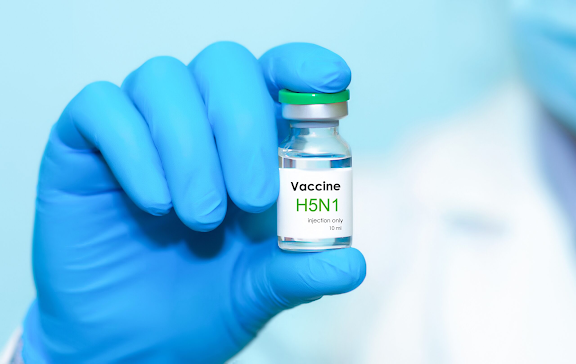 |
Putin Hands Trump 25,000-Page Dossier on mRNA Crimes: ‘Time to Arrest Bill Gates’
On direct orders from Vladimir Putin, Russia’s top scientists have spent years dissecting the mRNA vaccines rolled out by Pfizer and Moderna. Their conclusion is explosive: these weren’t rushed mistakes or corporate cash-grabs—they were engineered as military-grade bioweapons.
The result of that investigation is a staggering 25,000-page dossier, compiled for Vladimir Putin himself and now delivered directly into the hands of Donald Trump.
Inside those pages lies the accusation that the U.S. mRNA rollout was not public health policy—it was a globalist coup d’état, orchestrated by shadow agencies like DARPA and backed by Big Pharma titans. Their mission: to deploy a bioweapon years in the making under the cover of a vaccine.
And the fallout is already here. Russian scientists allege that this so-called vaccine is driving an unprecedented surge of “turbo cancers”—aggressive, fast-moving malignancies striking down people across the globe. The cover-up, they warn, runs deep, with governments and corporations working hand in hand to bury the evidence.
We’re not just talking about botched science. We’re talking about crimes against humanity. And according to Russian insiders, this dossier isn’t just evidence—it’s a weapon in a geopolitical chess game that’s about to escalate.
At the recent Alaska summit with Donald Trump, Putin seized the moment to deliver a meticulously compiled dossier—25,000 pages of hard evidence gathered by Russia’s top medical scientists and intelligence operatives—laying bare the damning truth about the mRNA bioweapons.
What does it mean when Russia—not the CDC or the FDA—is the one forced to dig through U.S. data and hand the White House the real facts and figures?
A chilling new review led by Dr. Angelina Alekseevna Seliverstova and Professor Oleg Germanovich Makeev of Ural State Medical University in Yekaterinburg has drawn a direct line between mass mRNA vaccination and an unprecedented surge in global cancer cases.
Their study, published in a Russian medical journal after four years of analysis, combed through government registries, peer-reviewed literature, and mechanistic studies, with a heavy reliance on U.S. CDC statistics and VAERS reports.
The conclusion is devastating: the Covid mRNA rollout has triggered long-term safety risks—including a dramatic rise in deadly cancers that continues to accelerate.
Among the most alarming findings are 2,579 cancer-related adverse event reports in VAERS between late 2020 and August 2022, with particular spikes in ovarian cancer following vaccination.
According to the study, ovarian cancer risk may have risen by as much as 1,433-fold after mRNA vaccination.
While Western health agencies and media dismiss or bury the evidence, it’s Russian scientists who are putting the puzzle together—and Putin’s 25,000-page dossier—detailing how the bioweapon has unleashed a global surge of turbo cancers—is already sending shockwaves through Washington.
Just days after Putin personally handed the evidence to Donald Trump during the Alaska summit, whispers of panic are rippling through the halls of power.
Especially considering Trump himself has taken an interest recently in discovering the truth about the vaccine roll out.
Fauci. Gates. Bourla. The power players of the vaccine empire are now squarely in Putin’s crosshairs and he is demanding they face consequences.
According to the Russian president, the mRNA plot didn’t come from science or medicine—it was born deep inside the U.S. Deep State, with military-linked agencies steering the agenda.
Putin claims the so-called “vaccine” had been in development since at least 2011—maybe even earlier—long before the plandemic provided the perfect cover for its global release. And most importantly, he says he has the evidence to prove it. That evidence is now in Donald Trump’s hands.
Just weeks before Russia’s dossier dropped, the McCullough Foundation released its Hybrid Harms Hypothesis. The message is blunt: repeated Covid infections and mRNA shots are working together to drive chronic illness, sudden deaths, and soaring excess mortality worldwide.
The study shows how spike protein persistence and immune disruption are trapping vaccinated populations in a cycle of disease. The numbers don’t lie—countries with the highest mRNA uptake, from Germany to the U.K., are still seeing abnormally high death rates.
One analysis of 145 nations even linked vaccination programs to 291% more cases and 205% more deaths than expected.
These findings mirror Russia’s own review, pointing to a global pattern officials refuse to admit. If true, humanity is staring down a slow-motion health crisis—cancer, autoimmune disease, premature death—perhaps the greatest medical and political scandal in history.
But even that may not be the darkest revelation. Because Russia’s investigation has uncovered something more disturbing: mRNA transferring from the vaccinated to the unvaccinated through close contact… including sex.
According to Russian medical researchers working under Putin’s direction, the global blood supply itself has been compromised by the mRNA rollout. Their dossier includes hundreds of pages of studies and case reports showing unvaccinated patients suffering cardiac arrest and strokes within days or weeks of receiving transfusions from vaccinated donors.
This alarming evidence mirrors the work of Dr. Ben Marble, who has long warned about the hidden dangers of contaminated blood. As he explains
Strong words from Dr. Marble—but he’s not alone in calling for Nuremberg 2.0. Putin is fully on board, as are his deputies, who warn the human toll of the mRNA rollout is already greater than World War II.
And the nightmare may not be over. With the slow-burn death toll still climbing, new research suggests we’re being exposed to mRNA in ways few imagined—through sexual contact and intimacy itself.
Dr. Lewis has gone even further—presenting vial evidence that sexual intercourse between a vaccinated and an unvaccinated partner can taint the unvaccinated person’s blood, with devastating effects: collapsing white blood cell counts, a crippled immune system, and blood so discoloured it barely resembles life.
Of course, mainstream media in the West is doing everything it can to suppress the damning report and the news that it even exists.
Remember when the mainstream media were telling us that Fauci’s biolabs in Ukraine were just a vast far-right conspiracy theory? They lost control of that narrative thanks to people like yourself, who refused to believe their lies, and demanded to see the evidence.
Biden’s Pentagon was finally forced to admit they have operated 46 biolabs in Ukraine under Fauci’s control since the early 2000s. Talk about a major humiliation for the mainstream media and their fact-checkers.
So what was the Pentagon’s excuse for operating these secret biolabs? Well, apparently they are involved in a US project to rid the world of “weapons of mass destruction“.
Remember the last time the Deep State trotted out the “weapons of mass destruction” lie?
That shameless lie led directly to the Iraq War and the humanitarian and economic disaster that followed it – just the way Israel and the neocons wanted it to play out.
Why bring up 9/11, the War on Terror, and the Patriot Act in a report about the Covid vaccine rollout? Because, as Putin has revealed, they are inextricably linked by a chain of engineered crises and authoritarian power grabs.
And there is hope for humanity… because it just so happens that RFK Jr. is saying the very same thing.
Under international treaties ratified by the U.S. Congress, the development and release of biological weapons is classified as a war crime—punishable by hanging. And according to the Russian dossier, that’s exactly where Anthony Fauci’s fingerprints are found.
Are we finally ready as a society to confront the truth?
There are topics so dark, so unsettling, that society refuses to even discuss them. Depopulation. Eugenics. The idea that a small group of elites might decide who lives and who dies. Most people assume those horrors were buried with the ashes of Nazi Germany.
But history tells a different story. Eugenics didn’t vanish—it adapted. It changed its name, slipped into think tanks, universities, and global foundations. And today, it lives on in the polished rhetoric of people like Bill Gates, Anthony Fauci, and the WEF, wrapped in the language of “public health,” “climate sustainability,” and “the greater good.”
The World Economic Forum tells us they want to “improve the state of the world.” But who exactly is included in that vision of the future? Behind closed doors, the talk is not about lifting up all of humanity—it’s about managing populations, trimming the herd, deciding who gets to belong to tomorrow and who doesn’t.
And as Russian investigators point out, the Covid pandemic and the experimental vaccine rollout weren’t accidents of history. They were the culmination of decades of planning—eugenics reborn under new branding, designed not to save lives but to quietly reduce them.
Even Frederick Osborn, co-founder of the American Eugenics Society, admitted back in 1968: “Eugenic goals are most likely to be attained under a name other than eugenics.” That was the playbook—and half a century later, the play has been executed.
And what does it say that for years, U.S. taxpayers were funding Anthony Fauci—the highest-paid government official in the nation—a man the Russian dossier now portrays as the most influential death scientist since Josef Mengele?
Maybe that tells us everything we need to know about the real priorities of those in power.
Watch:















